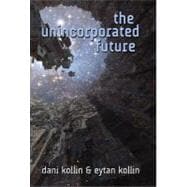
“Fans of SF as a vehicle for ideas will devour this intriguing debut…. The Kollin brothers keep the plot moving briskly despite the high proportion of talk to action. Their cerebral style will especially appeal to readers nostalgic for science fiction’s early years.” —Publishers Weekly
The New copy of this book will include any supplemental materials advertised. Please check the title of the book to determine if it should include any access cards, study guides, lab manuals, CDs, etc.
The Used, Rental and eBook copies of this book are not guaranteed to include any supplemental materials. Typically, only the book itself is included. This is true even if the title states it includes any access cards, study guides, lab manuals, CDs, etc.